For most of us of a certain age, the question “How much REO do you have in your portfolio?” was usually answered in terms of the number of eight-track tapes. Of course with the advent of the housing crisis, this term, which references Real Estate Owned or bank-owned property, has become the benchmark of distress for communities across the country. Now important policy announcements by the federal government will turn loose a veritable “REO” speed wagon on community associations across the country and we need to be prepared for the potential impact.
Bad metaphors aside, mortgage giant Freddie Mac issued a policy bulletin (2012-2), which allows unemployed borrowers to seek forbearance on their mortgages for a period of six to twelve months. The Federal Housing Administration (FHA) offers a similar program. Freddie Mac has also extended authority to lenders it works with to offer up to six months of mortgage forbearance as part of this program. CAI expects Fannie Mae to follow Freddie’s lead on this issue.
Community associations should remind residents that loan forbearance offered by FHA, Fannie Mae, Freddie Mac or on behalf of any lender does not apply to association assessments. CAI also encourages all associations to work with troubled borrowers to avoid any instance of assessment delinquencies and to preserve the ability of owners to remain in their units. Boards may want to consider adding this information to delinquency notices to ensure the board is aware of any residents who are in a forbearance program. Foreclosing on such owners may invite federal regulation of association enforcement powers.
Other plans for REO properties include the Federal Housing and Finance Agency’s bulk sales to rental program. Under this program investors have been invited to bid on pools of properties owned by Fannie Mae, Freddie Mac and FHA. One condition of this program is that the properties be rented for at least a year after purchase. While this program will help clear out the backlog of REO properties clogging the market, it also creates potential problems for community associations. First, as condominium associations know, FHA limits the number of rental units to no more than 49 percent of an association. It also requires that no more than ten percent of any condominium association be owned by a single entity. Thus, a bulk sale may result in an association being disqualified from some federal mortgage programs. Beyond that concern, there is the issue of the bulk seller obtaining a sizeable ownership share or even a majority of units within the community. This will create a host of governance issues and impact the rights on existing owners.
There is good news as well. The Office of the Comptroller of the Currency (OCC) issued a policy bulletin outlining the responsibilities of lenders in foreclosure. That guidance (embodied in OCC Bulletin 2011-49) provided notice to lenders who foreclose that they are responsible for payment of community association assessments. CAI survey data indicates that more than three out of four REO properties do not pay required assessments. Thus the federal actions here will help force lenders to live up to their financial commitments.
As part of our ongoing Mortgage Matters program, CAI is working to protect homeowners in community associations and to ensure access to fair and affordable mortgage products for all current and potential community association residents. You can follow our work and share your thoughts at http://www.caimortgagematters.org/ and on Twitter at @CAIGPA. CAI will continue to monitor and participate in shaping changing federal housing policies to ensure the perspective of community associations is heard.

